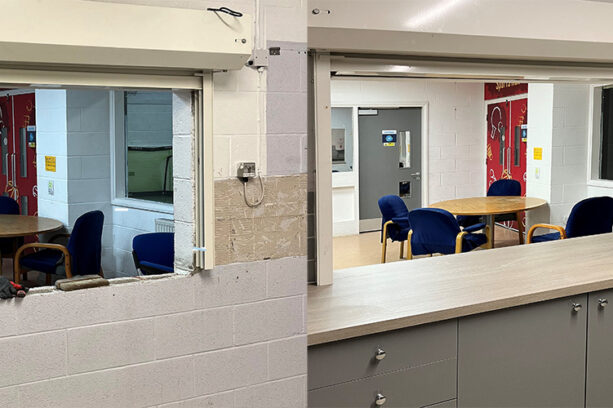Power to the people

This article is from a previous Equinox magazine, which you can view in full here.
A company owned by the people who work for it? Equinox explores this way of managing a business by talking to the person who wrote the book on this, expert Chris Budd.
An Employee Ownership Trust (EOT), allows business owners to hand over ownership to their employees and enable fairer distribution of profits (though the original owner still receives an income from this).
So how does this work? In a nutshell, a company first establishes an EOT and is then independently valued. The owner sells their shares to the EOT, which pays for the shares from reserves and out of future profit.
Once the payments for the shares have been completed, the net profit is available for the employees. Now they have a greater stake in the company via the EOT, employees will be more engaged with the company’s outlook and more committed to helping create a profitable and sustainable business for the future. There are also tax benefits (according to current laws which are subject to change) and these are that employees can receive up to £3,600 each tax year from an EOT free from income tax – though not national insurance – and no income, inheritance or capital gains tax liabilities can arise from selling a controlling interest to an EOT.
There is an argument this can help drive business performance and innovation, while also allowing the (previous) owner of the business to continue profiting from it. What’s more, the owner who has sold the business can do so without the pain of selling it to a competitor or to a larger firm that will simply swallow it up (and with it, all of its character). This is what drove Chris Budd to adopt the EOT structure.
Chris is a financial adviser who until recently headed up his own business, Ovation Finance. Chris didn’t know how he was going to handle his business’s succession and then came across the EOT phenomenon which – after a bit of research and due diligence – he fully embraced. Now Chris still receives an income via the EOT but is free to work on his new business – The Eternal Business Consultancy – and has even written a book about it (‘The Eternal Business’). To find out more, Equinox sat down with Chris to find out what struck him about this structure.
“The most important thing about an EOT is that it’s not simply about an ownership structure,” says Chris. “It is about creating a sustainable business. I recently set up as a business consultant and many people ask about tax benefits of an EOT but that is not what this is about. Pursuing an EOT is part of a long-term plan.”
The EOT allowed Chris to walk away from Ovation Finance, leaving it in the hands of his former employees who are now owners. Proud of what he had built, he was glad he didn’t have to sell to a competitor or a consolidator. However, while the actual establishment of an EOT doesn’t take long, preparing a business for the process can take years. Chris says “The owners need to make themselves the least important people in the business. They cannot walk away if they still need to run the business!”
Instead, everyone in the business has to have a clear sense of purpose and be working towards the same goal so it can take time to develop employees to this degree of responsibility. More specific steps, Chris notes, can include the delegation of decision making throughout the business and the spreading of responsibilities but refraining from announcing EOT plans too early.
“It is important owners do not announce an EOT until the business is ready,” says Chris. “Keep things quiet, otherwise you’ll make an announcement that is very difficult to work back from!
“The EOT is about creating a sustainable business. Once an owner sells to an EOT, they will be paid out of future profits that are coming from a business they no longer control. If that makes you feel nervous then you haven’t done enough. That is the ultimate test for if your business is ready for the long term.”
The EOT idea is starting to gain more coverage in the press and, with growth outlooks for British business looking sluggish amid growing uncertainty, more management boards and owners could come to consider it as an option. More EOTs are being established and John Lewis is arguably the most high profile business to take it up. Chris is bullish about how far the EOT could go as an option for business owners throughout the country and the benefits it could bring on a wider scale.
“The EOT works for businesses with 10-250 employees, and there are around 280,000 of these in the UK but only 320 EOT businesses, “ says Chris. “I think this is going to take over. Employees will have a choice; work for the boss who makes the decisions and keeps all the profit or be one of the bosses, have a say and receive a share of the profit. The decision is easy! Given that employees gain fulfilment from being engaged with the company they work for, and that profit is shared amongst all employees, I genuinely think the EOT could bring about societal change.”
Risk warning: the content contained in this blog represents the opinions of Equilibrium Investment Management LLP (EIM) and Equilibrium Financial Planning LLP (EFP). The commentary in no way constitutes a solicitation of investment advice. It should not be relied upon in making investment decisions and is intended solely for the entertainment of the viewer. Past performance is never a guide to future performance. Investments will fall as well as rise and you may not get back your original investment.

